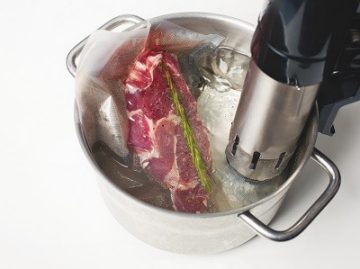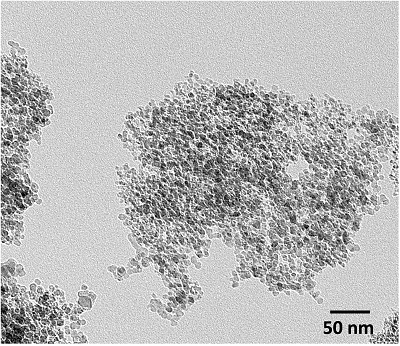FOR IMMEDIATE RELEASE

“Insights into Digestibility and Peptide Profiling of Beef Muscle Proteins with Different Cooking Methods”
Journal of Agricultural and Food Chemistry
Once used to prepare cuisine in only the finest restaurants, sous vide is now making its way into home chefs’ kitchens. French for “under vacuum,” the technique involves vacuum sealing food in a plastic pouch and then slowly cooking it in warm water. Now, researchers reporting in ACS’ Journal of Agricultural and Food Chemistry have found that, compared with boiling or roasting, sous vide increases beef protein digestibility during simulated digestion.
The heat of cooking causes meat proteins to undergo various changes, such as in their structure, oxidation and aggregation, which could affect how easily the proteins are broken down by digestion into small peptides or amino acids that can be absorbed into the bloodstream. The relatively low heat of sous vide –– typically about 140 F –– and the low-oxygen conditions can produce a tender, juicy, evenly cooked steak. Wangang Zhang and colleagues wondered if the culinary technique could also increase beef protein digestibility compared with boiling (cooking in water at 212 F) or roasting (cooking in an oven above 300 F). Beef that is more digestible could be more nutritious and less likely to cause gastrointestinal problems.
The researchers studied the effects of the different cooking methods on changes in beef protein oxidation and structure, which are known to influence digestibility. In cooked meat, they examined two markers of protein oxidation, finding that roasted meat was the most highly oxidized, followed by boiled meat and then the sous vide beef. Sous vide also caused less protein aggregation and fewer changes in the proteins’ structures than the other cooking methods. When the team placed the cooked beef in simulated gastric and intestinal fluids, the meat cooked by sous vide released a greater quantity and variety of peptides than meat cooked by the other methods, indicating increased digestibility. Further studies are needed to determine the effects of peptides from meat cooked with different methods on the gut microbiome and human health, the researchers say.
The authors acknowledge funding from the Jiangsu Agricultural Science and Technology Innovation Fund and the National Key R&D Program of China.
To automatically receive press releases from the American Chemical Society, contact newsroom@acs.org.
Note: ACS does not conduct research, but publishes and publicizes peer-reviewed scientific studies.
Note: ACS does not conduct research but publishes and publicizes peer-reviewed scientific studies.




